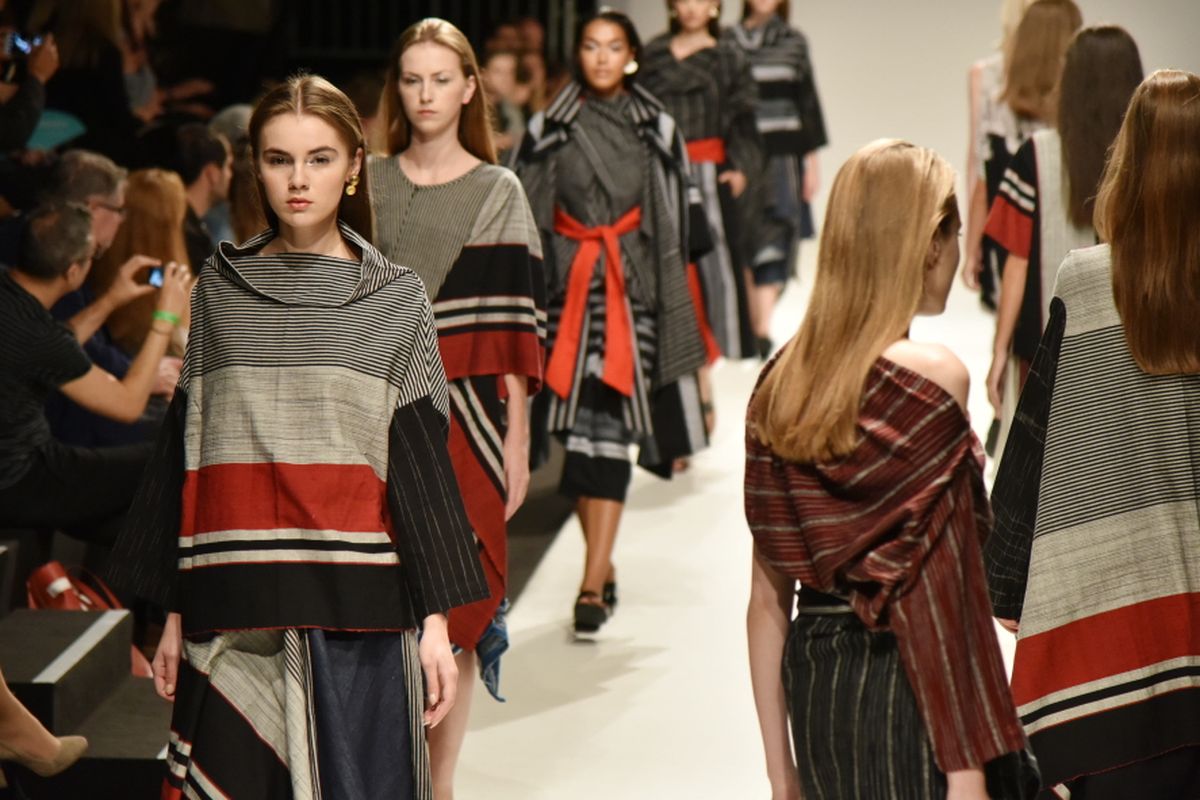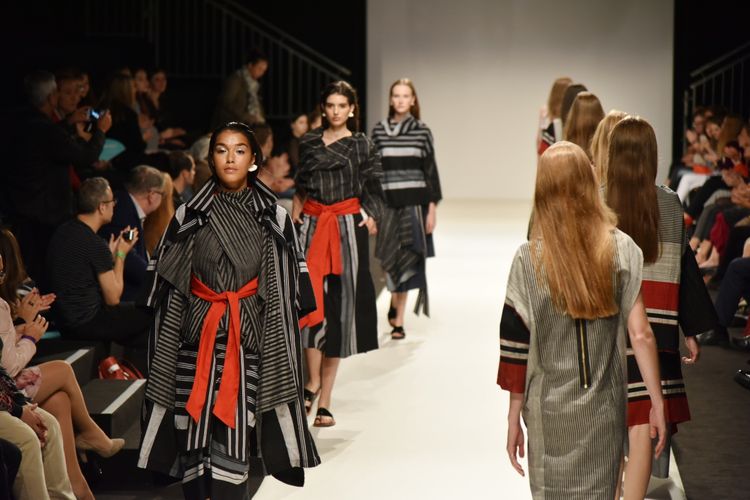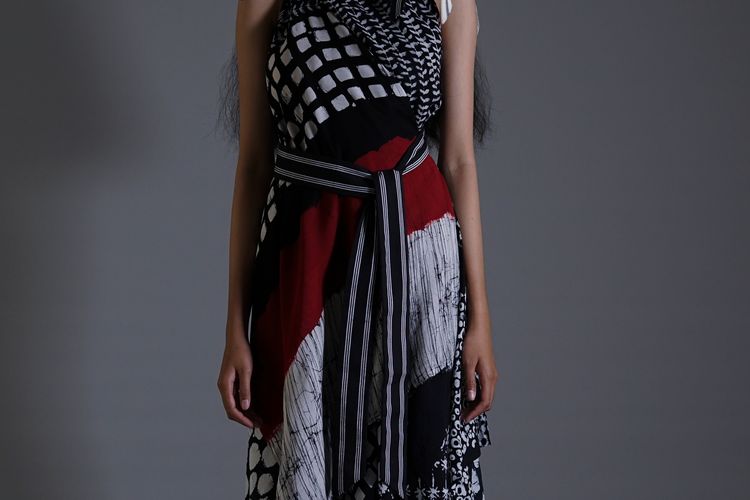Indonesia’s Lurik Fabric: From Downscale Item to High Fashion

He said that his fashion design is for everyone who wants to feel comfortable. “I design clothes for everyone who feels comfortable when wearing them.”
To reach out to his customers and grow the business, he also prepared an action plan for his business strategy. “It’s not easy to take care of the baby.”
For the long-term plan, Lulu will keep the current brand instead of finding a new name.
Besides, Lulu always introduces a new design during Christmas and Idul Fitri celebration every year.
Play a key role in national economy
The Industry Ministry’s small, medium, and various industries (IKMA) acting director general Reni Yanita said that the non-machinery weaving tool (ATBM) industry, which is part of the textile and apparel industry, plays a significant role in the national economy.
Based on the small, medium, and various industries (IKMA) directorate general’s secretariat at the Industry Ministry 375 weaving centers are comprising 12,660 business units and 48,581 workers. This reflects the big potential and turnover of the traditional or hand-crafted textile industry in the country.
Last year, the textile and apparel industry sector contributed 6.76 percent to the gross domestic product (GDP) of the non-oil and gas industry. However, the growth shows a decrease this year as the textile and apparel industry has also been affected badly by the Covid-19 pandemic. In the third quarter of 2021 alone, it reached 6.09 percent. The market demand has declined due to restrictions on public activities such as people’s mobility, public events, and other ceremonies.
Reni expressed hope that things will be better. “As the tourism and economic activities start to get better, we hope people’s purchasing power and market demand for traditional textile will also be increased,” said Reni.
The ministry called on the small, medium enterprises to work together and come up with innovations as well as to adapt feasible business models. This can be done by utilizing the online marketplace as an avenue to promote the products to wider market coverage, she said.
The Ministry of Industry also continues to develop the potential of small-medium enterprises through programs on capacity building, product quality development, standardization, providing machinery or equipment as well as access to promotions and exhibitions to increase their competitiveness.
In the textile and apparel industry, fashion designers are among the stakeholders who play a vital role in the development of the SMEs and creative economy sector. As for Lulu, his interest in promoting lurik traditional fabric in high fashion, not only contributes to the national economy but also preserves the ancestral cultural heritage.
Simak breaking news dan berita pilihan kami langsung di ponselmu. Pilih saluran andalanmu akses berita Kompas.com WhatsApp Channel : https://www.whatsapp.com/channel/0029VaFPbedBPzjZrk13HO3D. Pastikan kamu sudah install aplikasi WhatsApp ya.

































